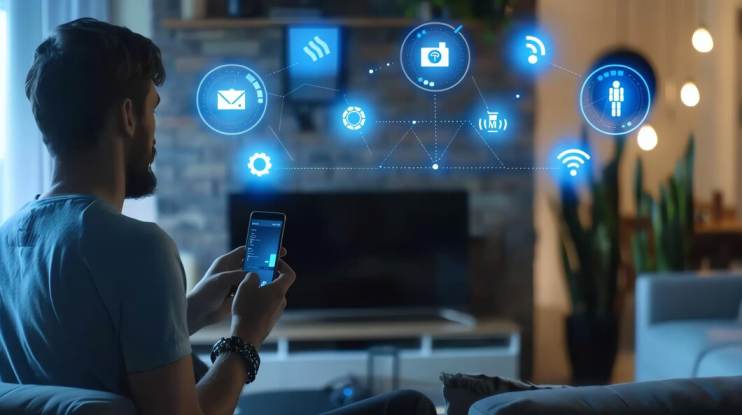Definition of Internet of Things (IoT):
The Internet of Things (IoT) refers to the vast network of physical devices embedded with sensors, software, and connectivity, enabling them to collect and exchange data. These devices operate autonomously or in tandem to perform tasks, making systems smarter and more efficient. IoT spans various industries, transforming how data is utilized to improve processes, safety, and user experiences.
Key Concepts of Internet of Things (IoT):
- Sensors and Actuators: Core components that collect data (e.g., temperature, motion) and trigger actions (e.g., opening a valve).
- Connectivity: IoT relies on wireless technologies like Wi-Fi, Bluetooth, 5G, and LPWAN to facilitate seamless data transmission.
- Edge and Cloud Computing: Data is often processed locally on edge devices for faster decisions or sent to the cloud for in-depth analysis.
- IoT Platforms: Solutions such as AWS IoT and Azure IoT Hub provide infrastructure for managing devices, data analytics, and integrations.
- Security Protocols: Ensuring device authentication, data encryption, and secure communication channels is critical in IoT ecosystems.
Applications of Internet of Things (IoT):
IoT is utilized in diverse sectors:
- Smart Homes: Devices like smart thermostats, lighting systems, and security cameras optimize home automation.
- Healthcare: Wearable health monitors, smart insulin pumps, and telehealth devices enhance patient care.
- Manufacturing: Industrial IoT (IIoT) monitors machinery, predicts maintenance needs, and optimizes production.
- Transportation: Autonomous vehicles, fleet management, and traffic monitoring improve logistics and mobility.
- Agriculture: Precision farming tools optimize irrigation, soil monitoring, and livestock tracking.
Benefits of Internet of Things (IoT):
IoT enhances efficiency, enables real-time monitoring, and fosters data-driven decision-making. It automates repetitive tasks, reduces operational costs, and provides predictive insights, leading to better resource management and personalized user experiences.
Challenges of Internet of Things (IoT):
Security vulnerabilities, interoperability issues, and data privacy concerns are significant challenges. With billions of connected devices, IoT systems must address hacking risks, ensure seamless integration across different platforms, and manage the ethical implications of data collection.
Future Outlook of Internet of Things (IoT):
The future of IoT is poised for exponential growth with advancements in 5G, AI integration, and edge computing. Smart cities, industrial automation, and healthcare innovations will drive adoption, while ongoing developments in cybersecurity and standardization will shape the next phase of IoT’s evolution.

